#melinda snodgrass
Text

And I realized that maybe none of us ever gets to choose our lives. Our only choice is to live the life that comes to us, or go down into darkness.
-- Melinda Snodgrass
(Cluj, Romania)
#choices#darkness#life#melinda snodgrass#travel photography#cluj#cluj napoca#romania#night photography#living#quote
198 notes
·
View notes
Text
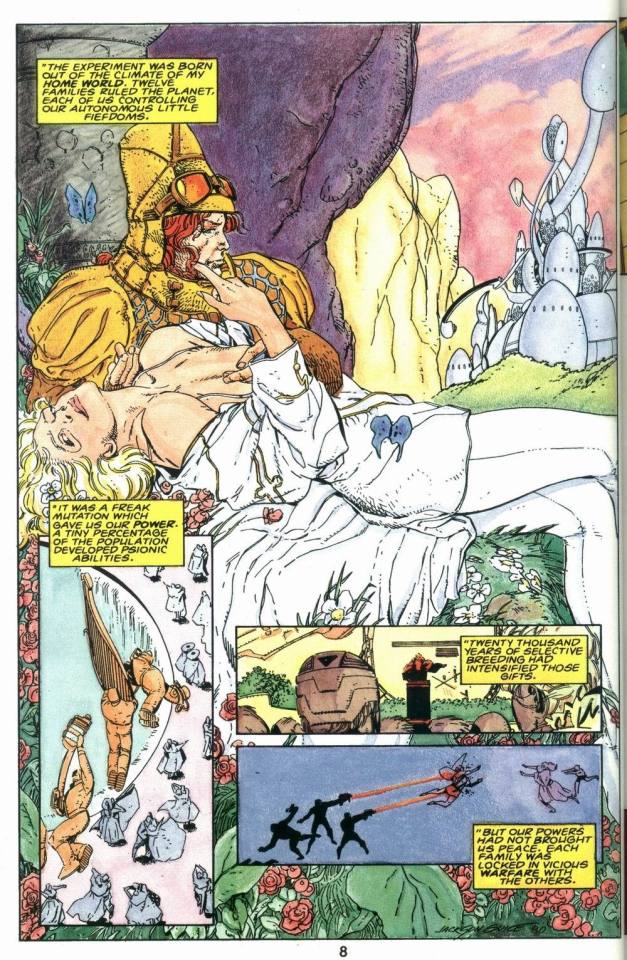
Wild Cards #1
(p. 8-19) by Melinda Snodgrass; Jackson Guice; Alfred Ramierez and Richard Starkings
Marvel/Epic
5 notes
·
View notes
Text
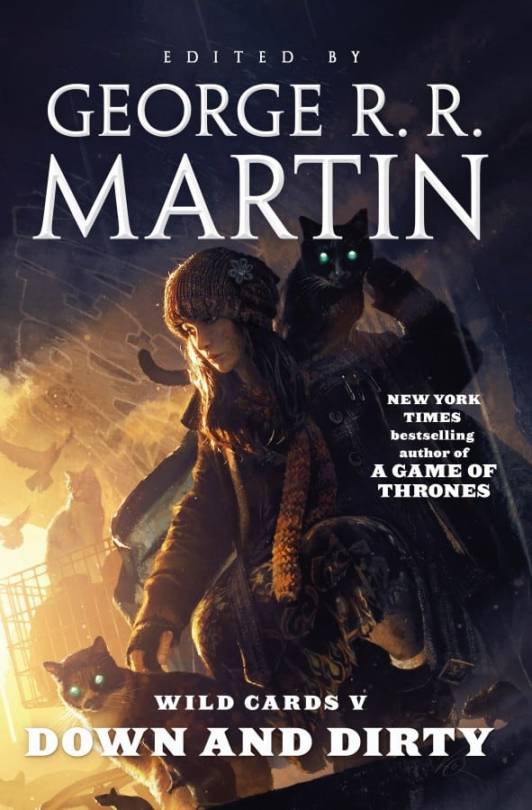
Wild Cards V: Down and Dirty
Editor: George R. R. Martin
Authors: John J. Miller, Roger Zelazny, Leanne C. Harper, Arthur Byron Cover, Melinda M. Snodgrass, Edward Bryant, Stephen Leigh, Pat Cadigan, and Walter Jon Williams
Cover: Michael Komarck
As a gang war breaks out across the Jokertown ghetto, a new mutated version of the wild card virus strikes New York causing more deaths and transformations. Now the local Aces and Jokers find themselves fighting on two fronts just to stay alive.
After the globe-trotting escapades of the previous volume, Martin and friends return us to New York and some fan favorite characters. It's great to see the Sleeper, Turtle, Bagabond, and others take the stage again. Like that earlier installment, this is a series of inter-related short stories, this time detailing the events around the gang war. We actually pick up with some characters during the events of the last book before everything moves forward in the timeline. Continuity is becoming a big part of this series now and each story builds on the previous like a literary house of cards. There are a number of stories that are serialized throughout this book, meaning they're kind of broken up in chapters between other stories. We've seen a little of that previously in the series, but this time Martin intertwines three different stories throughout the book.
Disappointingly, the gang war story is really more of a background to this overall mosaic. Only a few stories really spotlight that storyline. The good news is the wild card virus outbreak and the escalating political intrigue more than make up for any lack in the gang war story. I found myself more interested in those plotlines as the book went on. There are also some very personal journeys for the Turtle and Dr. Tachyon in this book that really had me looking for the next chapter relating their stories.
Most of the stories were very engaging and kept me actively turning pages. I felt Edward Bryant's "The Second Coming of Buddy Holley" was a bit of a weak point for me. Not only did the story not really fit into any of the storylines, but Cordelia Chaisson doesn't seem to make for a great protagonist. This is two books in a row where I hit a bump on stories focusing on her. I didn't think I was going to enjoy "Jesus was an Ace" by Arthur Byron Cover, but it really did give me a great insight into Reverend Leo Barnett. I'm sure there are bigger things in store for that character in future books.
Overall, this was a better and more interesting read than the last one. While there was a bit of jumping around between stories, it still kept me interested and wanting to read more. My head was spinning at possibilities and I can't wait to see what the gang has in store for the future!

#wild cards#george r.r. martin#john j miller#roger zelazny#leanne harper#Arthur Byron Cover#melinda snodgrass#edward bryant#Stephen leigh#pat cadigan#walter jon williams#science fiction#superheroes#short stories
5 notes
·
View notes
Text
If you want to read any ST novels featuring Uhura, try Uhura’s Song (1985) by Janet Kagan and The Tears of the Singers (1984) by Melinda Snodgrass. They’re excellent and focus on Uhura’s expertise in language and music.
(X)
3 notes
·
View notes
Text

#george rr martin#wild cards consortium#david anthony durham#ed bryant author#carrie vaughn#melinda snodgrass#the expanse#fort freak#kevin andrew murphy#walter jon williams#daniel abraham#ty franck#steve perrin#victor milan#john jos miller#gail miller#howard woldrop#marko kloos#stephen leigh
1 note
·
View note
Text
FifffffTSssigggs or There and Back There Again (We blame the Wizard)
Greenings Thirders
We have been studying your sayings. Most of which are simply not supported factually. For example, “What does not kill you makes you stronger.” We believe your medical and rehab facilities are full of humans who would argue against that although it certainly might explain your frantic race toward annihilation. And what about “The grass is always greener on the other…

View On WordPress
#aliens#annalee newitz#commentary#criticism#fantasy#fiction#gina chen#humor#melinda snodgrass#neal asher#reviews#sci fi#science fiction#writing
1 note
·
View note
Text
'The Measure of a Man' is one of the more famous Star Trek: TNG episodes. It's written by Melinda M Snodgrass. She talks about this episode and how it came about in the recent episode of 7th Rule.
youtube
#star trek#next generation#melinda m snodgrass#measure of a man#denise crosby#cirroc lofton#ryan t husk#7th rule#trek writers#Youtube
4 notes
·
View notes
Photo
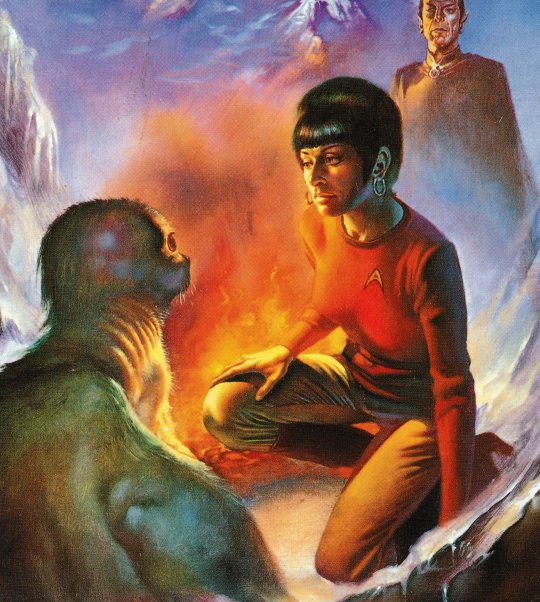
Boris Vallejo cover art for Tears of the Singers by Melinda Snodgrass
579 notes
·
View notes
Text
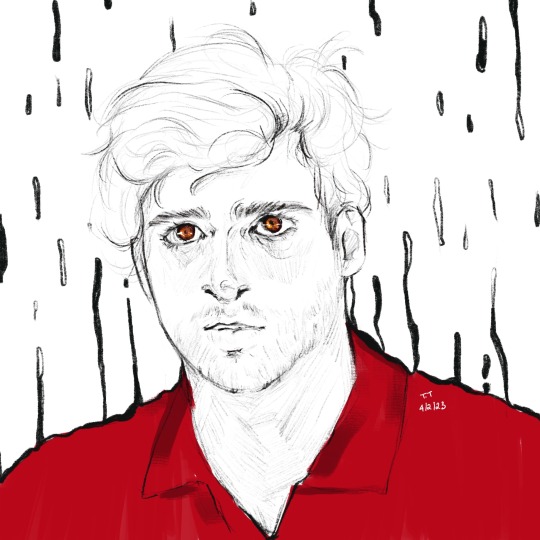
And I realized that maybe none of us ever gets to choose our lives. Our only choice is to live the life that comes to us, or go down into darkness.
- Melinda Snodgrass
#carlos sainz#f1#my art#f1blr#formula one#f1 fanart#digital fanart#scuderia ferrari#ferrari#carlos sainz jr#quote#art#illustration
24 notes
·
View notes
Text
"The Tears of the Singers" review
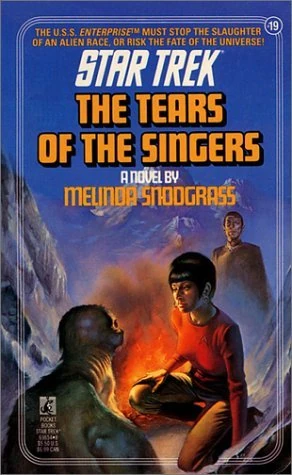
Novel from 1984, by Melinda Snodgrass.
A very romance-focused novel, distinctive for having Uhura as a main character. She gets in a love relationship with a virtuoso composer, who will be the key to resolve the problem at hand: deciphering the musical language of a new species, to warn them about their impending doom.
The other romantic couple in the book is most unexpected: the Klingon general Kor (from Errand of Mercy) and his recent wife.
The narrative is fine, though the central section of the novel plods a bit, and there's no major development for several chapters, with characters going in circles around the same problems.
The solution to the central mystery is also, in my opinion, quite predictable since at least half of the novel.
Music is, of course, a central theme in the story. And I think the narrative did a good job of capturing its elusive nature, specially at the end.
There's also a kind of environmentalist message, since the new aliens (the Taygetians or Singers) are very similar to seals, and are being slaughtered by greedy hunters. The Federation comes off as quite unsympathetic, because it seems to be totally okay with this as long as the Taygetians are considered just "unintelligent animals". (Come on! I would have expected them to be more respectful of animals, intelligent or not, by the 23rd century. They're only killing them to collect some stupid jewels, after all!).
Also, I wonder if the writers of The Voyage Home took some inspiration from this book, since humpback whales are said to be extinct...
As for characters, Guy Maslin (Uhura's love interest) gets a good development. He starts as a snobbish, self-centered celebrity, and progresses to a brave man, willing to sacrifice himself for a good cause, despite his physical frailty.
Uhura is portrayed as strong, caring and determined, but I don't think the reader gets to know much more about her than what's already present in the series: she sings, she likes music, she's sometimes torn between her duty to Starfleet and her desire of a family... You know, the usual.
In fact, the portrayal of female characters (specially Kor's wife) is rather sexist, for the standards of other novels of this era.
On the other hand, the triumvirate gets a more secondary role compared with Uhura and Maslin. Spock is a bit fastidious sometimes; he tends to present objections to everything, even when he doesn't have a better suggestion (shut up, Spock!).
But McCoy bounces on his feet, which is great. And Kirk defeats a guy, in one of his famous hand-to-hand combats, by kicking him in the balls, which is... great as well.
Overall, it was a decent novel, though I wouldn't count it among my favorites.
Spoilers under the cut:
A space-time warp is eating starships in the Taygeta system, and it seems the warp is quickly expanding, so the Enterprise cancels all shore leaves and is tasked with investigating it.
The only inhabited planet in the system is home to some seal-like beings, who spend their whole lives singing. They're currently being hunted for their precious crystal tears, which they shed upon dying, since they're considered simple animals. But Spock is convinced that their musical language is proof of a higher intelligence, and that investigating it may cast some light on the nature of the space warp.
However, deciphering such a complex language would require the skills of a really talented musician.
Fortunately (or unfortunately for the guy), there's just such a musician in their current starbase: Guy Maslin. Uhura had attented his concert, and a bit by chance, she ended up on a date with him. The guy is quite a jerk, and very dismissive of the military, but Uhura holds her ground. And despite their continous bantering, it's obvious there's a growing attraction between them (you know, they're just like Spock and McCoy).
However, Maslin's opinion of Starfleet doesn't improve much when he's forcefully recruited into the Enterprise to help with the Taygeta problem. Some of his criticisms are kind of fun, since they reflect what many viewers of the series must have thought at times; like why is Kirk always going down with the landing party, instead of taking care of his ship...
Anyway, the guy is determined to hate every second of this forced mission. But Kirk insists on bringing him, even after learning he's suffering from a serious illness, that gets much worse with stress and overwork.
During the trip to Taygeta, Uhura and Maslin start falling in love despite all their discussions. Maslin is a pale, sickly little man, and often insufferable, so not your average love interest. And Uhura seems the only one who can deal with him.
It's fine that the romance gets development and is treated with seriousness for a change. Compared with Kirk's romances (actually quite infrequent so far: only in three novels), which never get beyond the very initial stages and feel pretty shallow.
Upon arriving in Taygeta, the Enterprise is greeted by two Klingon ships, tasked with a similar mission. But those ships are commanded by Kor, who still has much admiration for Kirk, and a sort of Klingon honor. So they make a truce to collaborate in the investigation of the warp.
Spock has the theory that everything is related to the Singers, and for the following days, Maslin tries to crack their music to no avail. The adult Singers never leave their grottos, and sing a continous melody, while the cubs are really cute and friendly to humans. At this point, the only result of Maslin's analysis is that the adults' song presents gaps in the structure, as if some instruments were missing.
The landing party also observes a strange phenomenon among the cubs: tons of fish leap out the sea, the cubs sing a different melody, and the fishes are magically transported to the grottos, for the adults to eat.
Besides, the Enterprise scanners notice that the planet's terrain is continually shifting, with forests appearing where there was previously a desert, and viceversa.
Maslin keeps working on the music, each time more involved with the mission, despite the aggravation of his symptoms and Uhura's worries about his health.
Meanwhile, Kor's wife (Kali) suspects his husband's first officer is conspiring to take his place. And she starts getting closer and friendlier with the humans. Kali also discovers a group of hunters stranded on the planet and killing Taygetians. So Kor and Kirk beat the bastards and put them in the brig.
At last, the landing party begins to understand some of the strange phenomena. The cubs' singing has the property to manipulate the environment at their will. While the adults' song, with its gaps due to the hunters killing them, is causing the warp in space.
When the Klingon learn about this reality-altering power, they decide to use the Taygetians for their own benefit. They betray Kor and the humans, and while the landing party battles them on ground, Kirk faces the Klingon ships from the Enterprise. Outnumbered, Kirk sees no other solution than luring the enemy ships into the warp, and they all disappear into another dimension.
Maslin is over-exerted after the battle on the surface, and very much in the throes of death, but wants to complete his magnum opus. Having deciphered at last the Taygetians' language, and using Uhura as a singer, they ask the cubs for help. With their powers, the creatures are able to recover the lost ships, and they transport Kor back to his starship, where he kills the traitor and ends the mutiny.
Then Kirk and the others are granted an audience with the Taygetian matriarch. And through a mixture of music and telepathic contact, they convince her of the necessity of stopping the song at once. The adults had been singing continually since three thousand years ago, to protect their planet from a nova. The radiation, however, is gone by now, so there's no more need for the song, which is in fact ripping the dangerous warp in space.
The Taygetians stop singing, and the warp disappears. But right then, Maslin dies in Uhura's arms (not very surprising, considering the fate of those who enter into a serious relationship with anyone from the regular crew...).
In the end, the Federation offers diplomatic relations to the Taygetians, now free of the burden of keeping the song. And Uhura deals with the loss of her lover.
Spirk Meter: 7/10*. Only brief moments, but rather blatant. Kirk watches Spock's "slender fingers" caressing a chess piece, and reflects on how much he has missed him, remembering Edith Keeler's words about how Spock belongs to his side.
Later, Kirk is getting dressed in his cabin with Spock present (he came from the gym, which means he was walking around showing his tits as usual).
When the Enterprise disappears inside the warp, Spock is sure that Kirk is alive, since he still feels his bond with him. And when Kirk is momentarily lost in the telepathic link with the Taygetian matriarch, he feels reassurance in Spock's "strong and beloved touch".
Besides this, Kor appears in the novel, so you know what that means... And this time, his hate-love for Kirk is more like love-love. He defends Kirk against the Klingon factions that wish to destroy the humans, and is quite willing to collaborate with him. Kor also expresses often his admiration for Kirk. And it's obvious he's been pestering his wife about how awesome Kirk is, during these past years.
It doesn't help that the narrative presents some of his officers as "handsome" or "elegant", when writing from Kor's point of view.
Also, we have this little gem from McCoy:
"Spock, you're just beggin' for a physical. A complete physical."
Sounds... hmmm... invasive.
*A 10 in this scale is the most obvious spirk moments in TOS. Think of the back massage, "You make me believe in miracles", or "Amok Time" for example.
15 notes
·
View notes
Text
Idly thinking about the brilliance of TNG's Lower Decks, so please do bear with me for a little while here... The show's seventh season often gets a not entirely unjustified rap as being a piece of filler while various parts of the writer's room were off shepherding the launch of Voyager and the transition to film with Generations, but here at last the season manages to attain the lofty heights of exactly what we expect from the "final season" of a show like this, in a fashion far more satisfying than simple continuity references or closure to running plot threads could ever be.
What I mean is that it demonstrates the inherent perks of the writer's room as a model of television production, something that has kind of been lost in the age of streaming and micro-writer's rooms. There isn't enough space for someone like, say, Brannon Braga with his weird exploration of body horror and/or temporal fuckery, or Ronald D. Moore with his cynical realpolitik.
Lower Decks very much hinges on René Echevarria's proven talents as one of the strongest writers in the TNG stable when it comes to intimate, character-driven pieces. The pitch came from outside the writer's room, but that hints at the real function of the room as a machine, whereby an abstract idea is subjected to a very particular finesse that helps bring out particular facets of a given script.
Ironically, Echevarria's own Star Trek career is another instructive proof-of-concept in this regard. His first script was The Offspring, but it was given an extensive do-over by Michael Piller and Melinda Snodgrass to better fit the aesthetics of the show. And here, his talents have developed far enough that he's effectively put on the other end of the process.
And it works. The script is beautifully constructed, with so many clever bits that invite the audience to become an active participant in the very procedure of watching Star Trek. The Alaska/Canada screw-up from Lavelle and Ben, the decision to cut away from the transport of Joret Dal and only show the hint of a Cardassian uniform, and of course the central set piece of the intercut poker games. (Here, for the visual triumphs, we should also commend director Gabrielle Beaumount.)
The episode derives its power from the audience's understanding that there were 165 episodes before this one, with their own rhythms and cadences. It disrupts it, but ultimately, in Worf's mutual connection with the lower decks personnel at the very end, collapses the narrative back into its familiar form. Of course, like all good narrative collapses, it comes at a cost, namely that of Ensign Sito.
It's brutal, and soul-crushing, to have spent so much time with this character only to have her swept away by the vicissitudes of fate, but it never feels cynical.
(In fact, one of the more bitterly memorable moments in watching the episode with my parents tonight - who had not seen the episode, or at least not recently - was my mother worriedly voicing her suspicions that Sito was not slated for a happy ending, and my father noting how bleak it would be for them to bring back this character to tell such a story. Crucially, he did not say this to disapprove, and I think it speaks volumes to how much Echevarria's script relies on the audience applying the televisual grammar of Star Trek to the episode.)
I'll admit I haven't seen any of the more modern Trek shows beyond Season 2 of Discovery - not out of conscious choice, mind you, I just have only so many hours of the day to watch Star Trek - but I can absolutely understand why this was the episode that got to pretty much single-handedly inspire the concept of an entire show, even if only in spirit.
For a show that can often feel rather formulaic - which isn't a problem, because the formula is a very, very good one that leads to some fantastic episodes - Lower Decks is proof that TNG wasn't *entirely* content to just coast by and rest on its laurels. It would have been justified to do so, but it still threw in the odd stylistic leap here and there.
And in so doing, it inadvertently prefigures more experimental modern television techniques - and contrasting against some of the more frustrating tendencies of the streaming era - all amidst a genuinely heartfelt and moving story. With all due respect to The Pegasus, Parallels and All Good Things, for me I think Lower Decks has now emerged as the champion of Season 7.
It's just that fantastic.
24 notes
·
View notes
Text
As our unofficial Festival of Beverly continues, Anika and Liz hang out in some caves and have very earnest discussions about terrorism. Yes, we’re discussing “The High Ground”!
Star Trek: Picard spoilers from 00:00 to 00:59
We are deeply unqualified to talk about the Troubles. Of course, so were the TNG writers… (Book credits: Just Another Kid by Torey Hayden and Say Nothing by Patrick Radden Keefe. If you want a review of “The High Ground” from an actual Irish person, please see this post by the always excellent Darren Mooney.)
As a character study of Beverly Crusher, “The High Ground” is amazing. As an episode with something to say about terrorism, it … exists.
Melinda Snodgrass was particularly good at including female characters in roles that otherwise tended to default male, and not worrying about whether or not they were “likeable”.
When Finn talks about the moral cowardice of the Federation, he probably just watched “Lift Us Up Where Suffering Cannot Reach”.
“The High Ground” does avoid the common American trope of romanticising the IRA.
Yes, Beverly and Deanna are both in feminised “caring” professions, but, um, how many female CMOs have been regulars in Trek?
The nameless boy who becomes Beverly’s apprentice
Picard spoilers from 31:28 to 32:16
The Beverly/Picard shippiness in this episode is OFF THE CHARTS
Finn feels like a first draft of Chakotay
Just gonna put this out there: the Prime Directive is bad, actually
Picard spoilers again from 41:11 to 44:30
4 notes
·
View notes
Link
Chapters: 1/1
Fandom: TOS - The Tears of the Singers - Melinda M. Snodgrass
Rating: General Audiences
Warnings: No Archive Warnings Apply
Characters: Nyota Uhura
Additional Tags: Drabble, Past Relationships
Summary:
Uhura never forgets Maslin
2 notes
·
View notes
Text
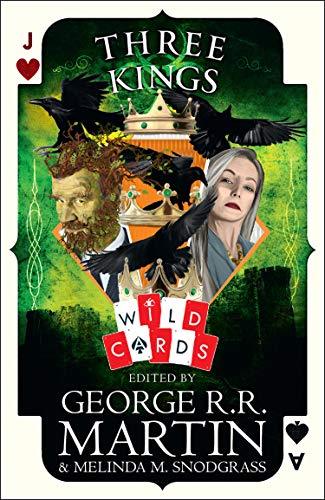
Three Kings (Wild Cards, #28)
Published May 14th 2020 by Harper Voyager
Original Title Three Kings
by George R.R. Martin, Peter Newman, Melinda M. Snodgrass, Peadar O. Guillin, Caroline Spector, Mary Anne Mohanraj, John Jos. Miller, Kevin Andrew Murphy, Carrie Vaughn, Marko Kloos, Emma Newman,
an amazing mosaic novel of great adventure and captured super-heroic powers. As a mosaic novel with various authors its the characters I will remark on, not only their unique powers but the precedence they bring to the world of wild cards. Roger (green man ) Barnes, is a remarkable new creation by author Peter Newman, is as wonderful in his character arch as his phenomenal power. I bow to the well known Wild card Noel, with so much of his real story detailed in this story. Ever remarkable Anya (Badb) McNulty is the spider of orchestration of the events of the book, not only bringing the desperate constitutes together but allowing heroic sacrifice, and retribution to happen with in the story. Constance (seamstress) Russell by Caroline Spector is the heart of the story, her tender advice, protection and providence. With out Alan (enimga) Turning Mary anne Mohanraj would not have had the history to give depth to the story.
I love the pull of three kings, showing the various nature of humans. The selfish, and the diabolical, to the miss construed Chads of the world. George R R Martin knows how to make the well known dream of kings in Arthur (Bobbin) Hugesson and his story of his rise to the throne of England.
4 notes
·
View notes